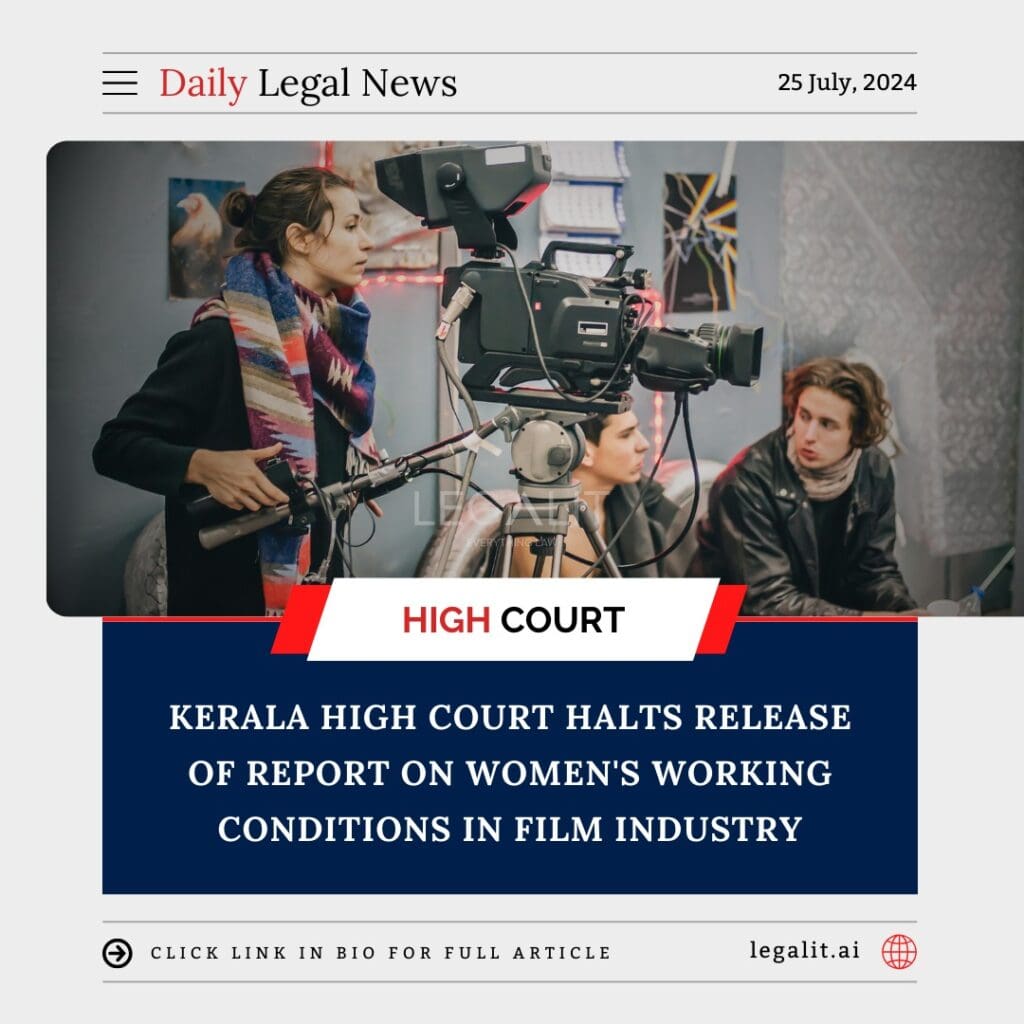
In a recent judicial decision, the Kerala High Court has issued a stay on the public disclosure of a report detailing the working conditions of women in the film industry. This report, commissioned by the state government, aimed to address widespread concerns about the safety, rights, and overall working environment for women in this sector. The court’s intervention has sparked a significant debate about transparency, privacy, and the protection of those involved in the report.
Background and Purpose of the Report
The film industry, known for its glamour and fame, has often been criticized for the underlying issues related to gender discrimination, harassment, and unequal working conditions faced by women. In response to these concerns, the Kerala government commissioned a detailed study to assess and document the working conditions of women in the film industry. The goal was to identify specific issues, recommend policy changes, and implement measures to improve the working environment for women.
Court’s Decision to Stay the Disclosure
The Kerala High Court’s decision to stay the disclosure of the report came after a petition was filed arguing that the release of the document could have unintended negative consequences. The petitioners expressed concerns that the report might include sensitive information that could compromise the privacy and safety of the individuals who provided testimonies. They also argued that the report could potentially damage reputations without due process and lead to a media frenzy.
The court, acknowledging these concerns, decided to temporarily halt the publication of the report until a thorough review could be conducted to ensure that the rights and privacy of the contributors are protected.
Implications of the Stay
The stay on the report’s disclosure has elicited mixed reactions from various stakeholders. Advocacy groups for women’s rights in the film industry have expressed disappointment, arguing that delaying the report’s release undermines efforts to address systemic issues of harassment and discrimination. They contend that transparency is crucial for accountability and for initiating meaningful change within the industry.
On the other hand, some industry professionals and legal experts have supported the court’s decision, emphasizing the importance of safeguarding personal privacy and preventing potential misuse of sensitive information. They argue that the report should be carefully reviewed and, if necessary, anonymized to protect those who came forward with their experiences.
The Way Forward
The Kerala High Court’s decision highlights the delicate balance between transparency and privacy in addressing workplace issues. Moving forward, the focus will be on how the report can be handled in a manner that respects the confidentiality of individuals while still addressing the pressing issues it seeks to uncover.
The state government and the judiciary will need to collaborate to find a solution that allows for the safe and responsible release of the report. This may involve redacting sensitive information, ensuring that legal protections are in place for those who testified, and setting up mechanisms to address any grievances that may arise from the report’s findings.
Broader Impact on the Film Industry
The outcome of this case could have significant implications for the film industry in Kerala and beyond. It underscores the need for comprehensive policies and frameworks to protect women and other vulnerable groups in the workplace. The case also highlights the importance of creating safe channels for reporting and addressing workplace issues without fear of retaliation or exposure.
In conclusion, the Kerala High Court’s stay on the disclosure of the report on women’s working conditions in the film industry represents a critical juncture in the ongoing efforts to improve workplace conditions. While the decision aims to protect the privacy and safety of individuals, it also underscores the need for a balanced approach to transparency and accountability. As the legal and governmental processes continue, the focus will be on ensuring that the eventual release of the report contributes positively to the betterment of working conditions for women in the film industry.